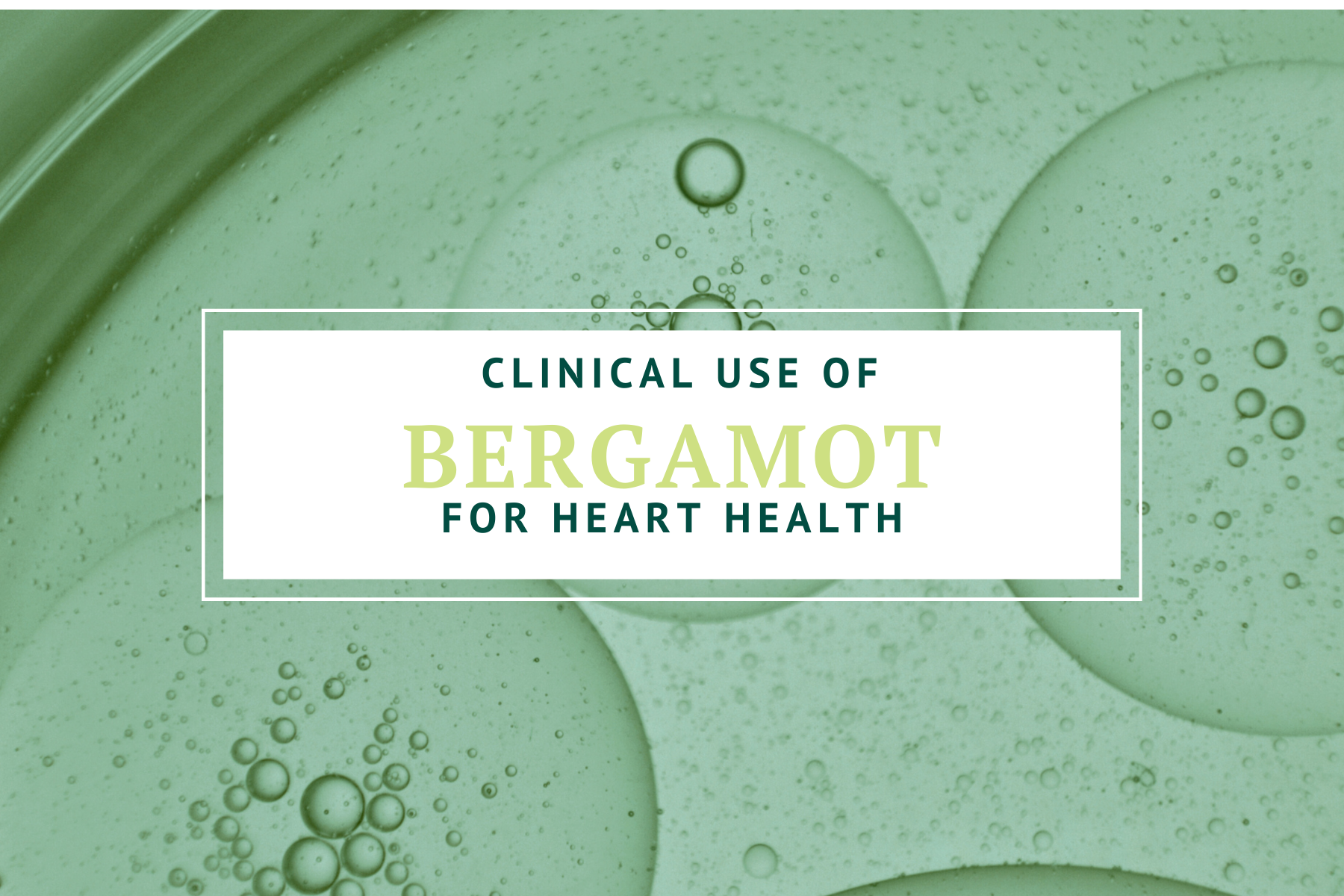In recent years, Citrus bergamot (Citrus bergamia) — a small citrus fruit native to Calabria, Italy — has gained attention among nutrition researchers. It's rich in rare polyphenols and flavonoids that have been clinically studied for how they support healthy cholesterol, triglyceride balance, and circulation*.
While no supplement is a substitute for medical care, the clinical studies behind citrus bergamot show promising potential for supporting the body's natural ability to maintain cardiovascular health within the normal range.*
What Makes Citrus Bergamot Different?
Unlike oranges or lemons, citrus bergamot contains unique compounds — brutieridin and melitidin — that may influence lipid metabolism and antioxidant activity. These compounds are not found in most other citrus fruits, and researchers believe this distinct profile may explain why bergamot extract performs differently in clinical settings.*
When standardized and concentrated, these compounds form what's known as a bergamot polyphenolic fraction (BPF) — a clinically studied extract used in human trials to support cardiovascular function and metabolic balance.*
What Clinical Studies Reveal
1. Supporting Healthy Cholesterol Balance*
In a randomized controlled trial of adults with moderate lipid imbalance, supplementation with standardized bergamot extract for 30 days was associated with improvements in lipid markers — including reductions in total and LDL cholesterol, while supporting HDL cholesterol levels (Mollace et al., 2011).
These results suggest bergamot polyphenols can help the body maintain a healthy balance of circulating lipids, a key aspect of cardiovascular support.*
2. Triglyceride and Oxidative Stress Support*
Further studies have shown that bergamot extract may also help maintain triglyceride levels within the normal range, while providing antioxidant activity that protects lipids from oxidation — a natural process that can affect how fats behave in the body (Gliozzi et al., 2013).
In this way, citrus bergamot offers dual nutritional support — helping manage fat metabolism while contributing antioxidant defense.*
3. Synergy with Lifestyle Habits*
In a 2014 trial combining citrus bergamot extract with lifestyle modifications, participants saw more pronounced support for cholesterol and triglyceride balance than with diet alone (Gliozzi et al., 2014). This highlights that bergamot may complement — not replace — healthy eating and movement routines.*
4. Cardiovascular Markers and Circulatory Health*
One of the more comprehensive studies, led by Toth et al. (2016), followed adults with moderate lipid elevations for six months. The results showed that bergamot extract supported small dense LDL balance and markers associated with healthy vascular elasticity.*
These findings suggest bergamot's polyphenols contribute to overall cardiovascular support, especially when paired with other heart-friendly nutrients like omega-3s and fiber.*
How Citrus Bergamot Works — Simplified
- Lipid Metabolism: Polyphenols help the body process dietary fats efficiently and maintain balanced LDL and HDL levels.*
- Antioxidant Support: Bergamot compounds neutralize free radicals, protecting lipids from oxidation.*
- Vascular Function: Some studies suggest support for nitric oxide activity, helping maintain vessel flexibility.*
Together, these nutritional actions provide well-rounded support for heart and metabolic health — without acting as a drug or altering body systems beyond their normal range.*
Safety, Dosage, and Use
Most human studies use standardized extracts providing 500–1,300 mg per day of bergamot polyphenolic fraction, taken with meals. Clinical studies report the extract is generally well tolerated, with only mild digestive upset in rare cases.
- Best time to take: Morning or lunch, with food.
- Pair with: Fiber-rich meals or omega-3s for complementary benefits.
- Consult your provider: Especially if using cholesterol-lowering medications, as bergamot may enhance nutritional lipid support.*
Comparing Citrus Bergamot to Other Plant Compounds
| Compound | Main Nutritional Focus | Typical Source |
|---|---|---|
| Citrus Bergamot Polyphenols* | Supports cholesterol, triglycerides, and antioxidant defense | Calabria, Italy |
| Green Tea Catechins* | Supports metabolism and oxidative balance | Camellia sinensis leaves |
| Resveratrol* | Supports vascular and endothelial health | Red grapes, berries |
How to Choose a Quality Citrus Bergamot Supplement
- Look for a standardized extract with stated polyphenol content (bergamot polyphenolic fraction).
- Choose USDA-Certified Organic and third-party tested options for purity and potency.
- Ensure the product is sourced from Calabria, Italy — the native growing region with the highest active compound levels.
Putting It All Together
Clinical research on citrus bergamot suggests it may support cholesterol balance, triglyceride metabolism, and cardiovascular function* when paired with healthy habits. It's one of the best-studied natural options for those seeking science-backed nutritional support for heart health.*
*These statements have not been evaluated by the Food and Drug Administration. This product is not intended to diagnose, treat, cure, or prevent any disease. Always consult your healthcare provider before beginning any new supplement.
References (APA)
- Gliozzi, M., Musolino, V., Carresi, C., Vitale, C., Mollace, R., Janda, E., … Mollace, V. (2013). Bergamot-derived polyphenolic fraction on lipid profile, endothelial function, and biomarkers in moderate hypercholesterolemia. Frontiers in Pharmacology, 4, 36.
- Gliozzi, M., Walker, R., Musolino, V., Vitale, C., Gratteri, S., Carresi, C., … Mollace, V. (2014). Bergamot polyphenolic fraction enhances rosuvastatin-induced effect on LDL-cholesterol, LOX-1 expression, and protein kinase B phosphorylation in patients with hyperlipidemia. International Journal of Cardiology, 170(2), 140–145.
- Mollace, V., Sacco, I., Janda, E., Malara, C., Ventrice, D., Colica, C., … Muscoli, C. (2011). Hypolipemic and hypoglycemic activity of bergamot polyphenols: From animal models to human studies. Fitoterapia, 82(3), 309–316.
- Toth, P. P., Patti, A. M., Nikolic, D., Giglio, R. V., Castellino, G., Biancucci, T., … Rizzo, M. (2016). Bergamot reduces plasma lipids, atherogenic small dense LDL, and subclinical atherosclerosis in subjects with moderate hypercholesterolemia. Frontiers in Pharmacology, 6, 299.
- Capomolla, A. S., et al. (2019). Atherogenic index reduction and weight change in adults using a pectin-enriched bergamot polyphenol formulation. Nutrients, 11(6), 1271.



